British slang for food spans a variety of terms, from “nosh” and “scran” to “grub” and “munch.” These expressions cover everything from casual snacks to hearty meals, reflecting the UK’s rich linguistic diversity. Whether it’s a quick “bite” or a full “spread,” each term adds flavor to the way Brits talk about food.
The British slang terms for food are examples of those slang terms which just seem uncannily British.
Most people would instantly recognize any of these terms as British, even if they weren’t familiar with them at first.
There’s a good deal of history to these terms, so let’s find out more.

British Slang For Food
Bites
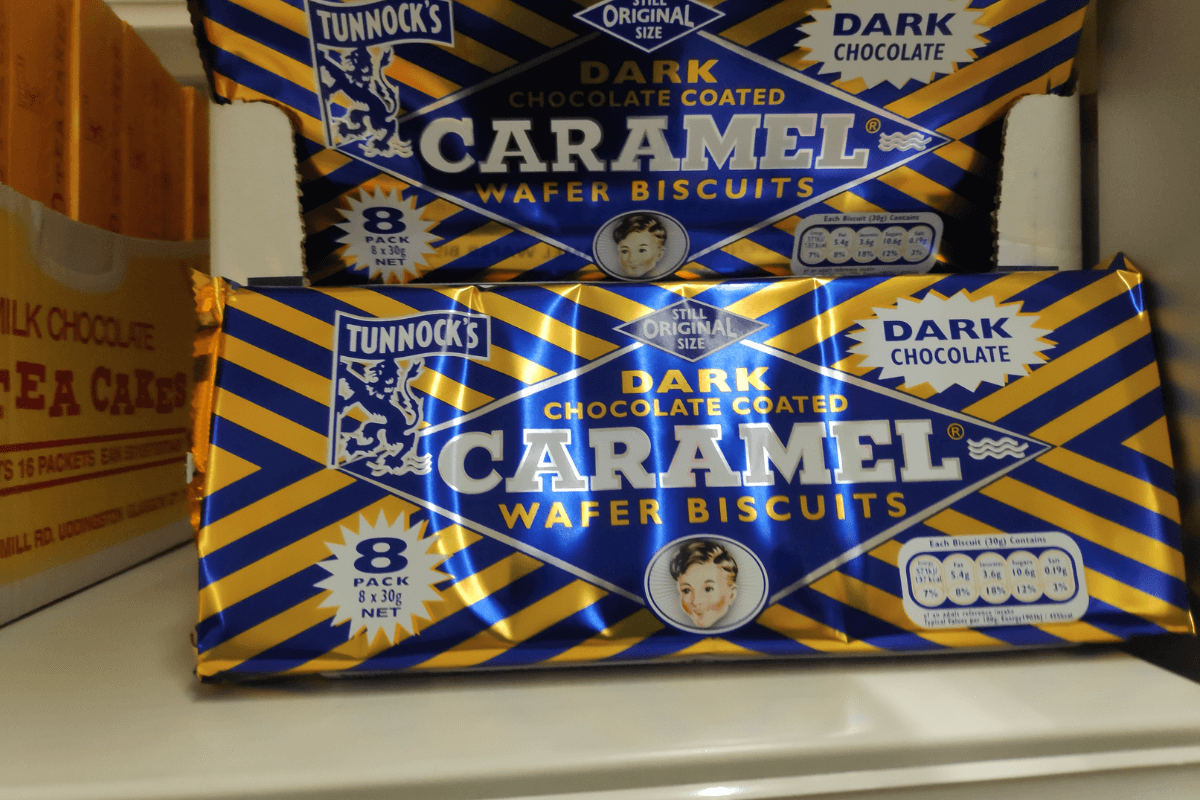
“Bites” refer to small portions of food, often served as snacks or part of a larger meal.
The term can also be used colloquially to suggest grabbing a quick snack or a light meal, similar to saying “a bite to eat.”
It’s a versatile term that fits various dining contexts, from casual snacking to appetizers at a gathering.
Examples in sentences:
- “Let’s grab some bites before the movie starts.”
- “The cafe down the road offers some tasty bites with their afternoon tea.”
- “I’m not too hungry; I’ll just have a few bites of whatever you’re making.”
- “These party bites are delicious and easy to eat while mingling.”
- “After our walk, we stopped for a quick bite to eat at the local diner.”
Chow

“Chow” is a slang term borrowed into British English that denotes food or meals in a very casual and sometimes playful manner.
It’s often used in informal settings, suggesting a laid-back approach to eating.
The term has military origins but has since become widespread in civilian usage as well.
Examples in sentences:
- “What’s for chow tonight? I’m starving.”
- “We need to stop for some chow on our road trip.”
- “The chow at the new Italian place is out of this world.”
- “Let’s get some chow before the game starts.”
- “I miss the chow from back home; nothing beats mom’s cooking.”
Eats

“Eats” is an informal way of referring to food or meals, similar to “chow.”
It’s a versatile term that can be used to describe any type of food, from a home-cooked meal to fast food.
“Eats” can also imply the act of going out to eat or the food available at a particular place.
Examples in sentences:
- “Where can we get some good eats around here?”
- “The festival had a great selection of street eats.”
- “I’m craving some comfort eats tonight, maybe pizza or burgers.”
- “This diner is known for its hearty breakfast eats.”
- “After the hike, we were all in the mood for some healthy eats.”
Fare
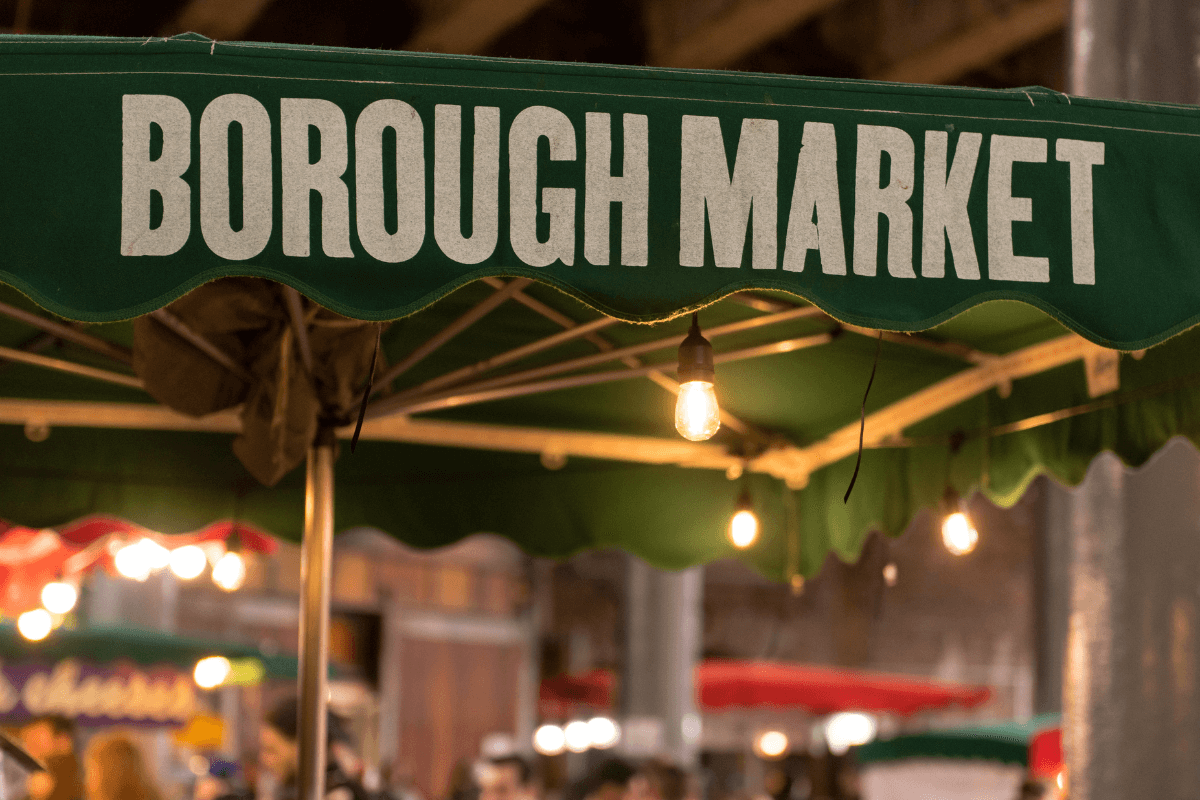
“Fare” refers to the type or quality of food available, often used in contexts like menus, events, or specific cuisines.
It suggests a focus on the culinary experience, highlighting the diversity or specialty of the offerings.
Examples in sentences:
- “The wedding fare was exquisite, with dishes from around the world.”
- “I’m impressed by the vegetarian fare at this restaurant.”
- “Street food festivals showcase some of the best local fare.”
- “Our holiday included sampling traditional fare in each country we visited.”
- “The café’s afternoon fare includes cakes, scones, and sandwiches.”
Feed
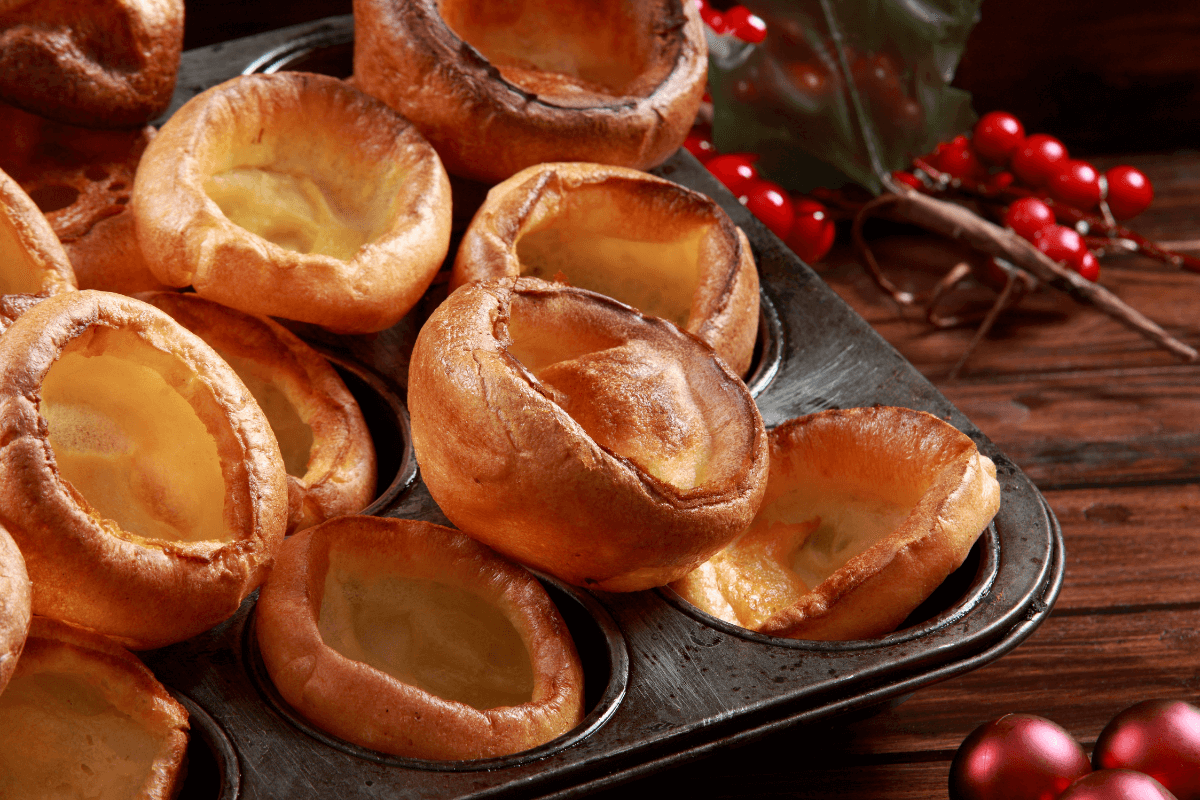
“Feed” in British slang often implies a substantial or particularly satisfying meal.
It’s used to describe situations where the food is plentiful and fulfilling, emphasizing the enjoyment and satisfaction derived from eating.
Examples in sentences:
- “We’re going to need a good feed after this hike.”
- “The local pub offers a decent feed for a fair price.”
- “I’m looking forward to a Christmas feed with all the trimmings.”
- “That was an amazing feed; I couldn’t eat another bite.”
- “Let’s get together for a Sunday roast—it’ll be a proper feed.”
Grub
“Grub” is one of the most commonly used slang terms for food in British English, suggesting a casual and hearty approach to eating.
It’s versatile, applicable to any meal or food item, and carries a laid-back, unpretentious connotation.
Examples in sentences:
- “What’s for grub tonight? I’m starving.”
- “This place has the best grub in town.”
- “All I need after a long day’s work is some good grub and a bit of rest.”
- “We packed plenty of grub for the camping trip.”
- “Let’s hit that new diner for some breakfast grub.”
Munch
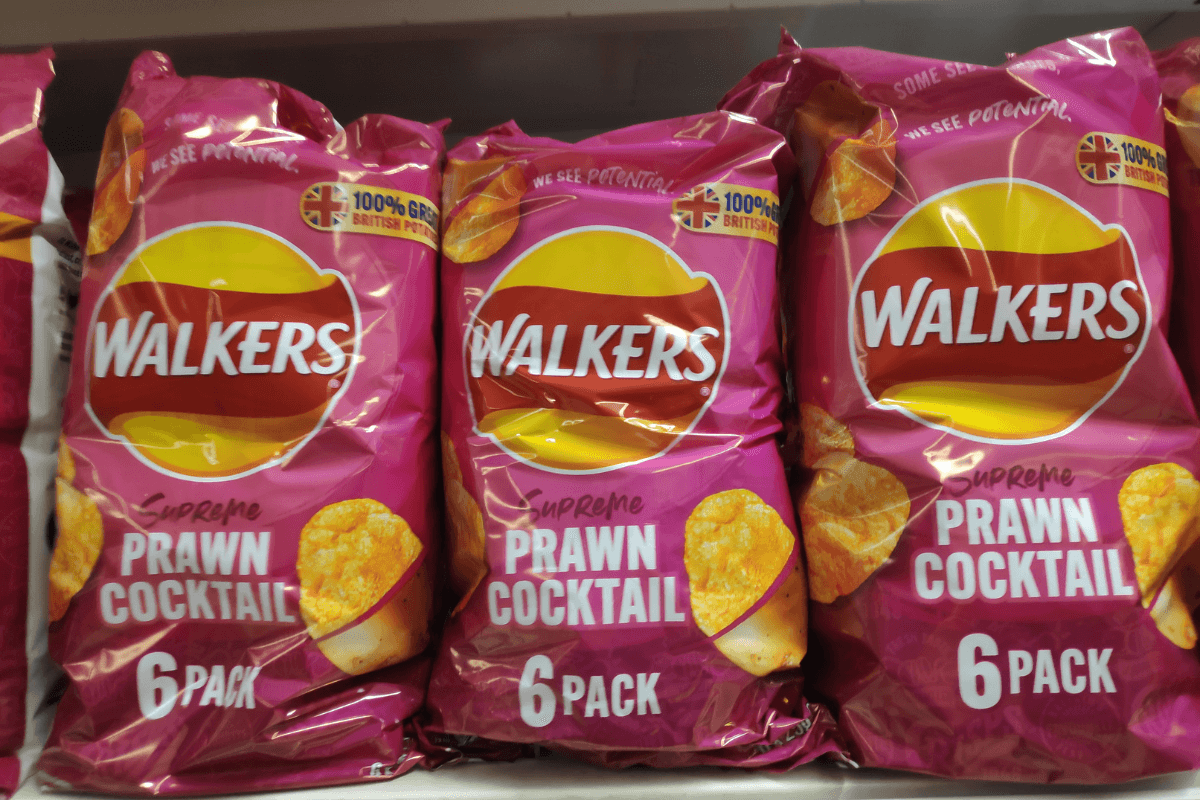
“Munch” is a versatile slang term used both as a verb (“to munch”) and a noun (“grab some munch”) in British English.
It suggests a casual, often snack-like approach to eating, focusing on the pleasure and informality of the experience.
Examples in sentences:
- “I could really go for some munch right about now.”
- “Let’s get some munch for the movie night.”
- “This place is known for its tasty late-night munch.”
- “I spent the evening munching on crisps and watching TV.”
- “What kind of munch did you bring for the road trip?”
Nosh
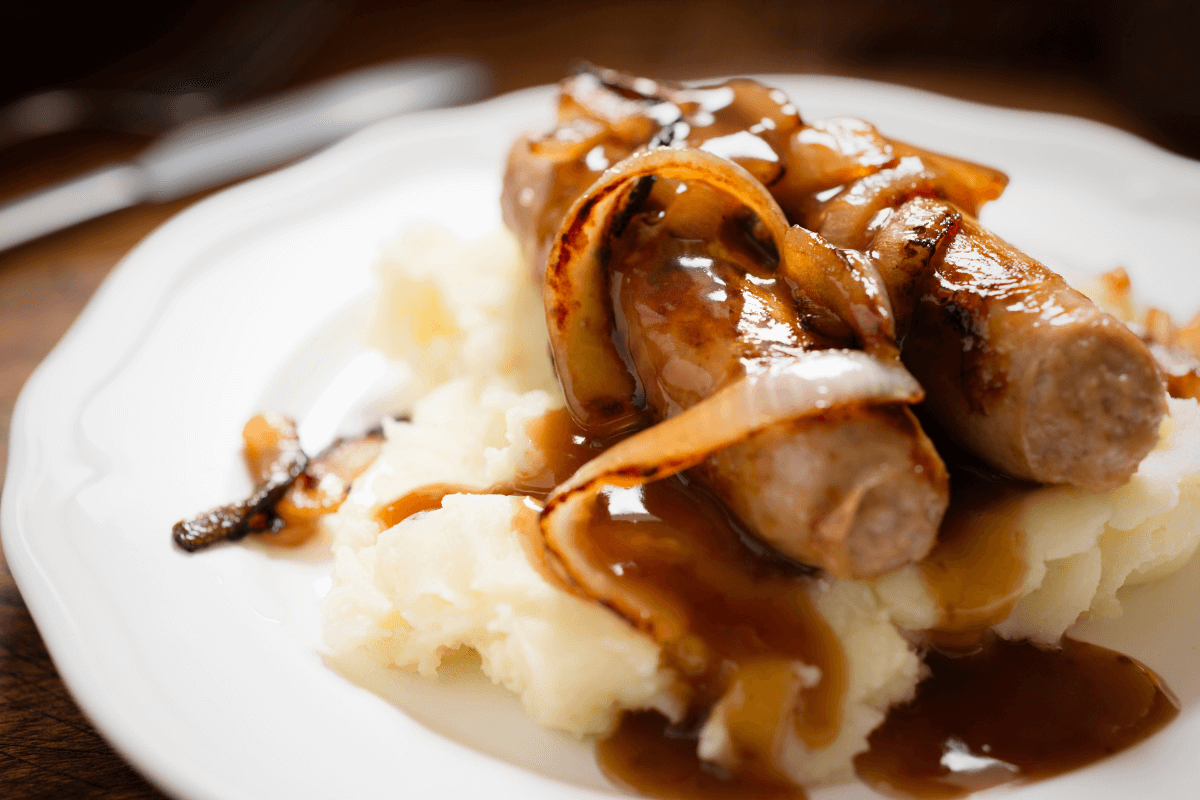
“Nosh” is another popular British slang term for food, used mostly in the south of England.
It is often used to describe meals or snacks that are particularly enjoyable or satisfying.
A quick sandwich for your lunch is nosh, and so is a great big feast for dinner.
It can also be used as a verb (“to nosh”), meaning to eat enthusiastically or with pleasure.
Examples in sentences:
- “We found a great place for a bit of nosh after the show.”
- “I’m just noshing on some leftovers from last night.”
- “Where can we get some good nosh around here?”
- “He’s always happy as long as he’s got some nosh in front of him.”
- “The party will have plenty of nosh, so come hungry!”
Rations
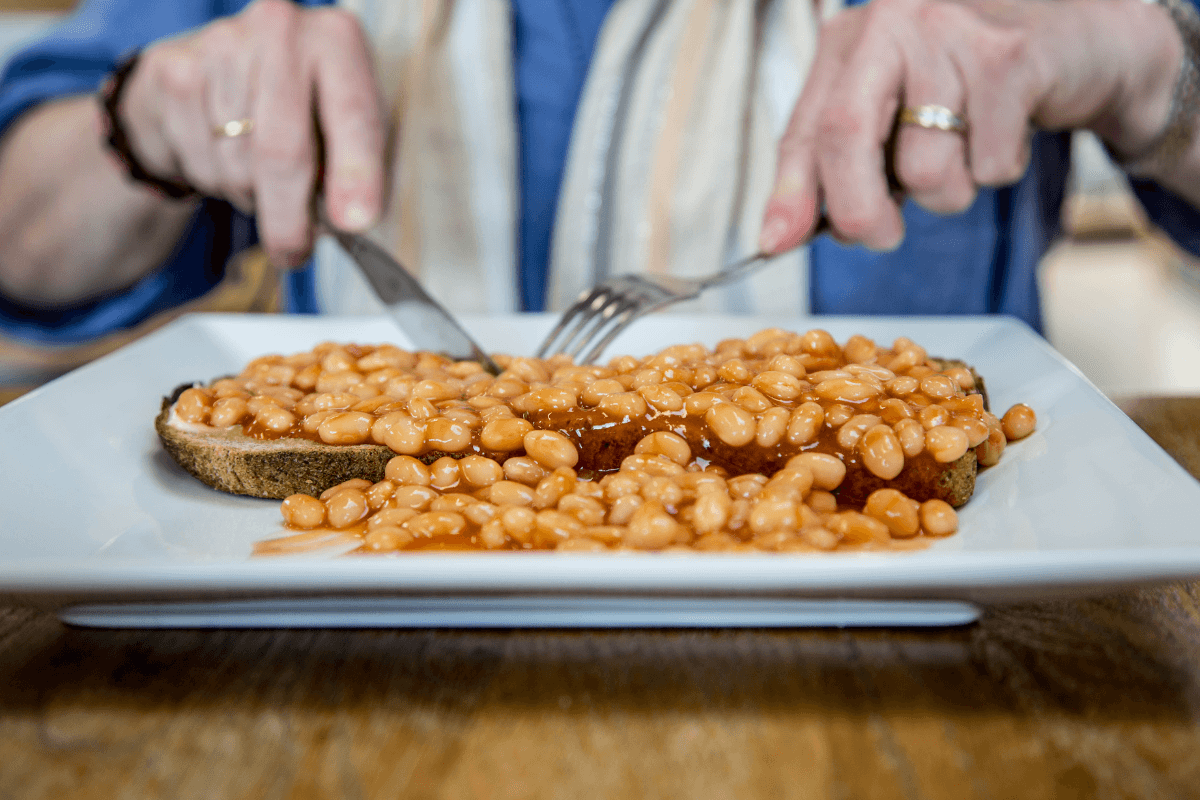
“Rations” refers to the allocation of food supplies, typically used in a context where food is scarce or needs to be distributed evenly, such as during military campaigns or in emergencies.
In British slang, it can humorously refer to any meal, especially when food seems scarce or limited.
Examples in sentences:
- “Looks like we’re on basic rations until payday.”
- “The way my kids eat, you’d think we were rationing food.”
- “I’m trying to diet, so I’m on strict rations.”
- “During the hike, we survived on our rations of nuts and chocolate.”
- “The soldiers made do with their rations while in the field.”
Scran
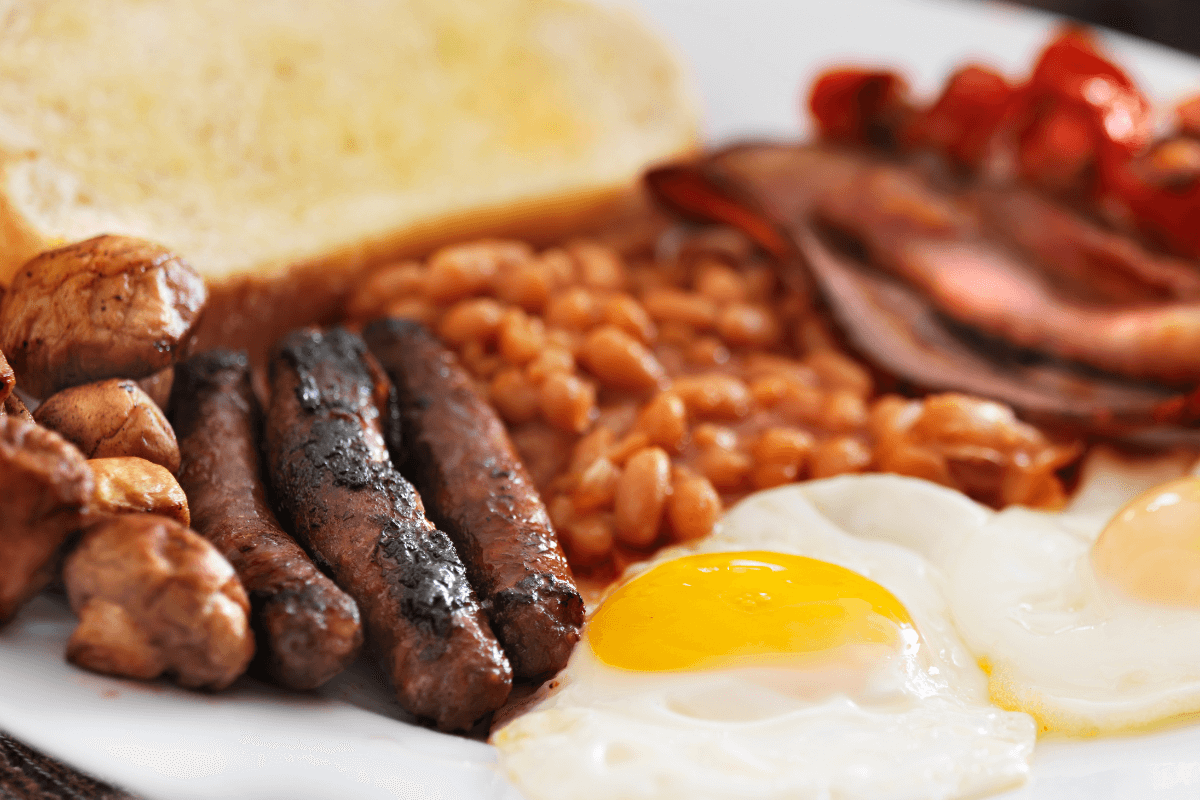
“Scran” is a term often used in the British armed forces and has permeated into wider British slang to mean food or a meal, especially one that is hearty and satisfying.
It’s associated with comfort, satisfaction, and a no-nonsense approach to eating.
Examples in sentences:
- “Let’s get some scran; I’m starving.”
- “The mess hall serves up decent scran for the troops.”
- “Nothing beats coming home to a good scran after a long day.”
- “We need to stock up on scran for the hiking trip.”
- “That café does the best breakfast scran in town.”
Snack
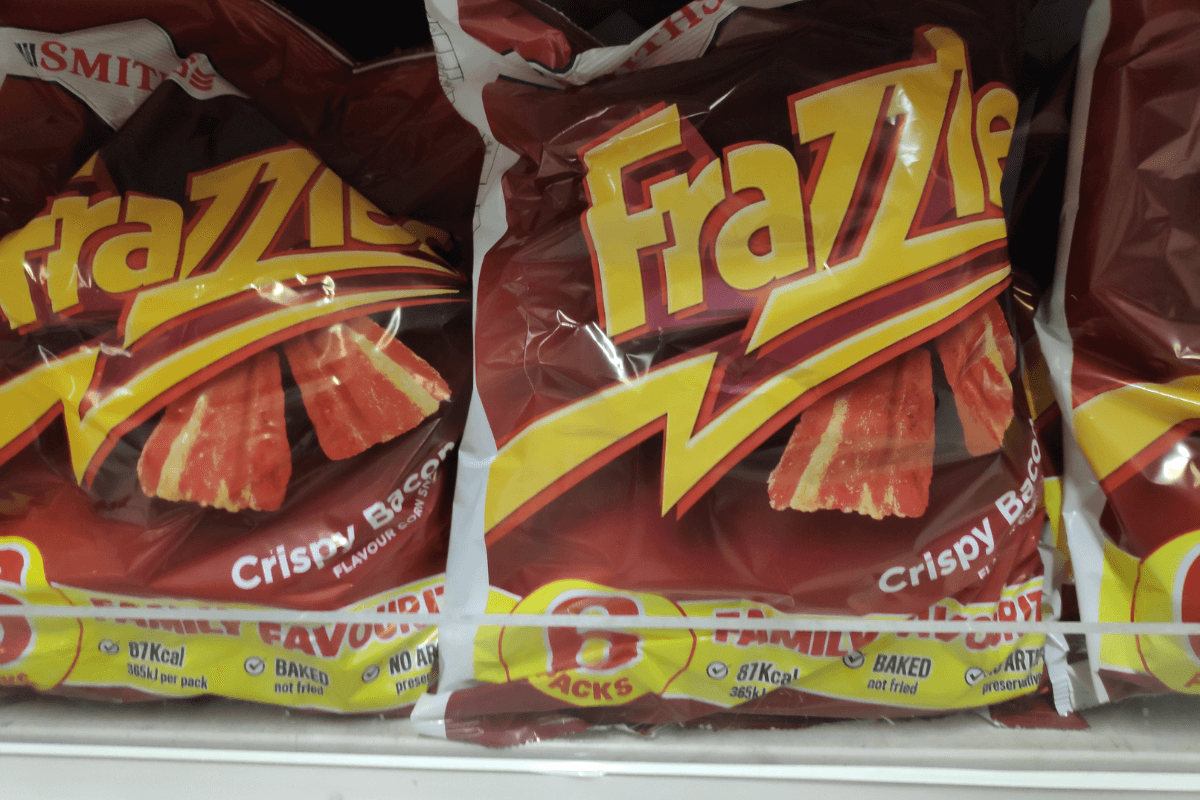
In British slang, “snack” refers to a light, often quick food item consumed between regular meals.
It’s a universal term that crosses dialects and regions, emphasizing the convenience and simplicity of the eating experience.
Snacks can range from a piece of fruit to a packet of crisps, catering to immediate hunger without the formality of a full meal.
Examples in sentences:
- “I’m a bit peckish; I think I’ll grab a snack.”
- “Do you have any snacks for the road trip?”
- “Midnight snacks are my guilty pleasure.”
- “We should pack some healthy snacks for the hike.”
- “The meeting will have coffee and snacks available.”
Spread
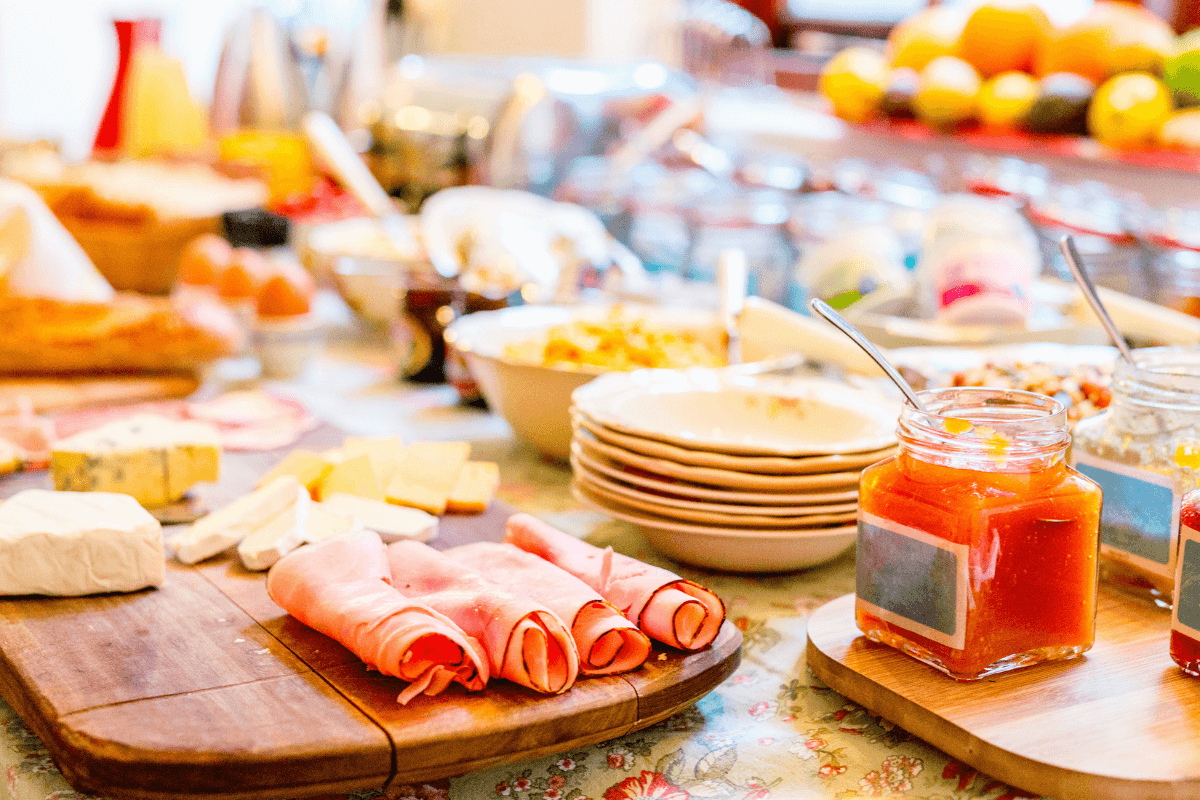
“Spread” in British slang often refers to a generous array of food displayed for guests, particularly at a party, buffet, or social gathering.
It suggests abundance and variety, inviting participants to sample a bit of everything.
A good spread is a sign of hospitality and celebration, showcasing the host’s effort to cater to all tastes.
Examples in sentences:
- “They put on quite a spread for the wedding reception.”
- “Let’s do a picnic with a nice spread of cheeses and wines.”
- “The holiday spread was impressive, with dishes from around the world.”
- “I’m looking forward to Grandma’s Sunday lunch spread.”
- “The company’s annual party always has an amazing food spread.”
Sustenance
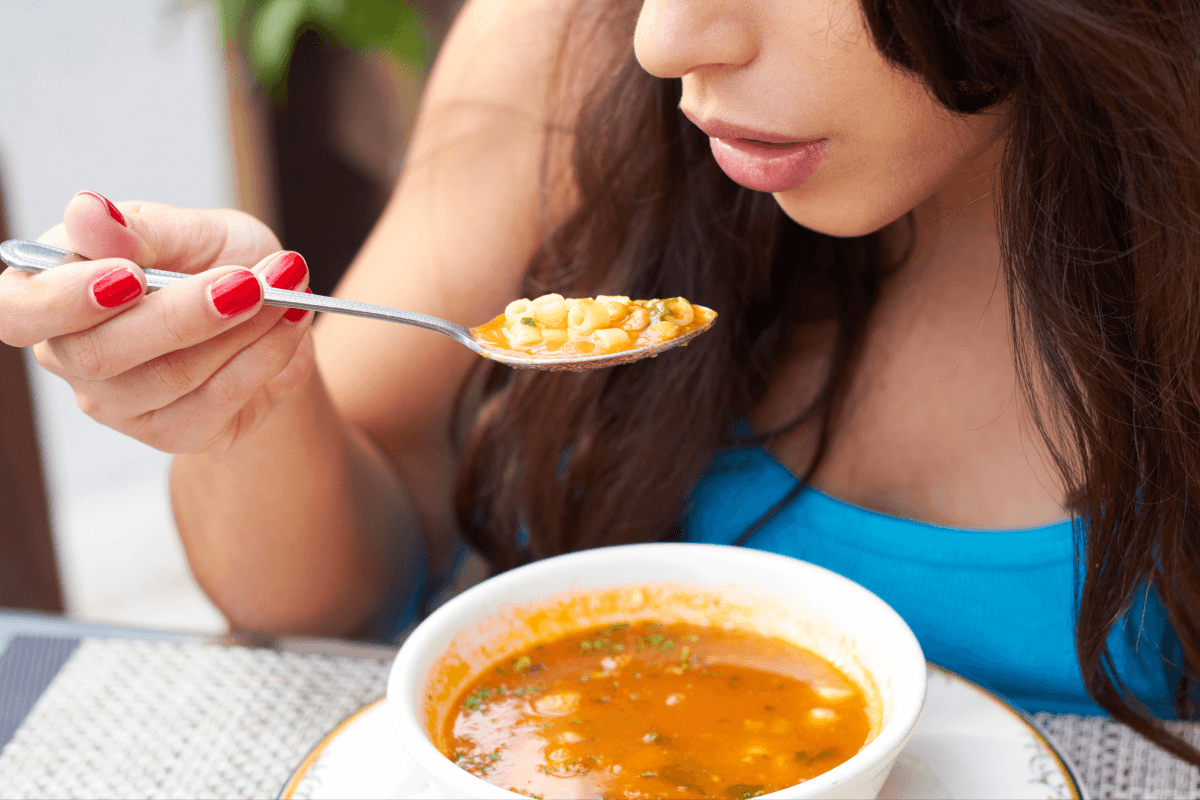
While “sustenance” might sound formal, it’s used in British slang to humorously refer to any food or drink that provides nourishment and energy.
It can be applied to both everyday meals and survival situations, often bringing a touch of irony or levity to the conversation about basic needs.
Examples in sentences:
- “After a long day’s work, I’m in desperate need of some sustenance.”
- “This soup is more than tasty; it’s pure sustenance.”
- “We packed enough sustenance for the entire camping trip.”
- “I need my morning coffee; it’s my primary form of sustenance.”
- “The kitchen is closed, so we’ll have to find sustenance elsewhere.”
Tucker

“Tucker” is a term more commonly used in Australian English but also found in British slang, referring to food in a general sense.
It’s often used affectionately to talk about meals, especially in casual or family settings.
Examples in sentences:
- “What’s for tucker tonight?”
- “This pub serves up some decent tucker.”
- “We need to stock up on tucker for the camping trip.”
- “After a day of surfing, I could go for some hearty tucker.”
- “The holiday feast was some of the best tucker I’ve had in ages.”
Victuals

“Victuals,” pronounced “vittles,” is an old-fashioned term for food and provisions.
It comes from the Latin word “victualia,” meaning provisions, and has been used in English since the Middle Ages.
While it may sound archaic, it’s still used in British English, often playfully, to refer to food, especially in a historical or nautical context.
Examples in sentences:
- “We’ve got plenty of victuals for the journey.”
- “The kitchen is well-stocked with victuals for the winter.”
- “Let’s see what victuals we can rustle up for dinner.”
- “The feast was laid out with all kinds of victuals.”
- “Before setting sail, they loaded the ship with victuals.”

